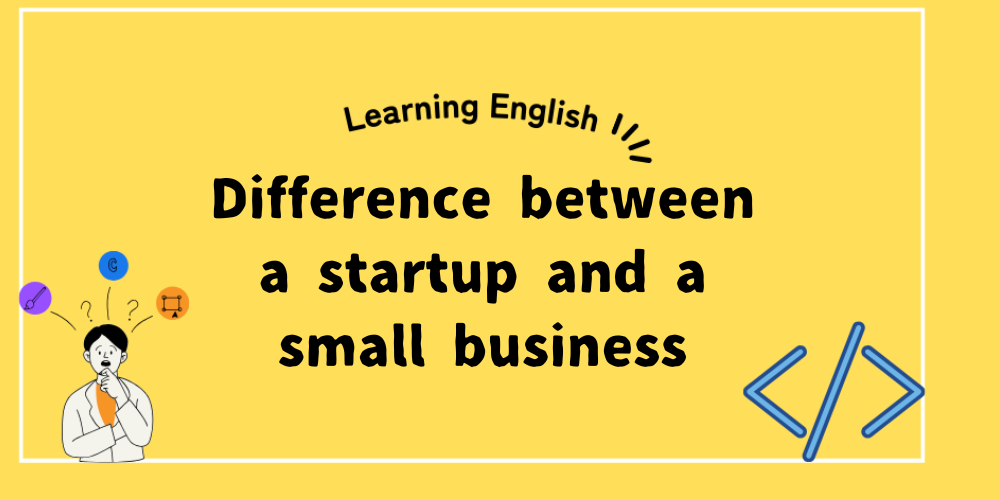
Startups and small businesses are often confused, yet they differ significantly in their business models, growth prospects, funding mechanisms, and operational goals. Let's delve deeply into the characteristics and differences between each.
Definition and Characteristics of a Startup
The term "startup" typically refers to new companies aiming for technological innovation or disruptive innovation. Generally, these companies employ scalable business models, aiming for rapid growth. Startups usually have the following characteristics:
- Innovation - They introduce new technologies or services to the market, aiming to transform existing markets.
- Scalability - Their business models can easily expand, generating large revenues at minimal incremental costs.
- Funding - They raise funds through various methods such as venture capital, angel investors, and crowdfunding.
- Risk and Return - They involve high risk, but also offer potentially high returns if successful.
Definition and Characteristics of a Small Business
On the other hand, small businesses are typically local, aiming for stable revenue on a smaller scale. They are often family-owned and provide community-based services or products. Small businesses are characterized by:
- Locality - They are community-focused, serving local customers.
- Self-funding - Many are funded through personal savings or family support, with minimal external investor influence.
- Small-scale operations - They usually have few employees, with owners deeply involved in daily operations.
- Stability-oriented - They aim for steady profit rather than rapid growth.
Key Differences Between Startups and Small Businesses
The differences between startups and small businesses largely hinge on their intended scale and speed of growth. Startups are usually based on novel ideas or technologies with the potential to revolutionize the market, aiming for rapid expansion nationally or internationally. In contrast, small businesses serve local markets and typically experience more gradual growth.
Funding methods also differ significantly. Startups often need substantial external investment, whereas small businesses usually operate on owner's funds or small loans. As a result, startups must be mindful of investor returns, while small businesses can operate more freely under their own vision.
Conclusion
Startups and small businesses fundamentally differ in scale of operation, growth strategy, funding methods, and market approach. Each model has its strengths tailored to specific market needs and plays a vital role in the economy. A deeper understanding allows for more strategic choices between these business forms.






